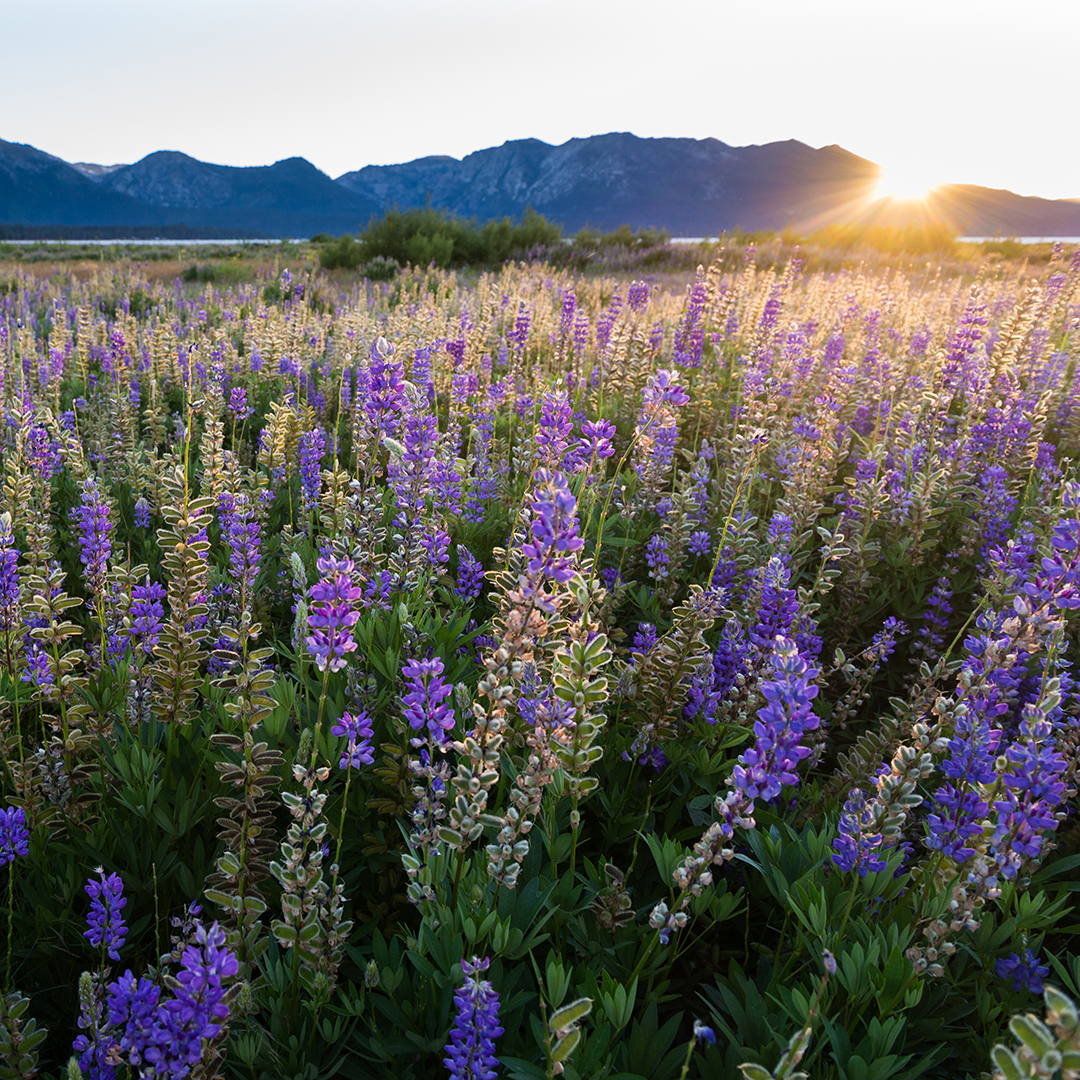
Tribal Affairs
The California Tahoe Conservancy is committed to consulting and partnering with Native American tribes who have lived in and around the Lake Tahoe Basin, including the Washoe Tribe of Nevada and California.
DaɁaw (Lake Tahoe) is the homeland of the waší∙šiw (Washoe people – the people from here). The waší∙šiw are the aboriginal stewards of the land in and around the Lake Tahoe Basin since the beginning of time and as a sovereign nation the Washoe Tribe of Nevada and California, as it is known today, continues to advocate for the protection and preservation of waší∙šiw ɁítdeɁ (the Washoe Peoples homelands). (See full land acknowledgement below.)
The Conservancy is committed to working with the Washoe Tribe as stewards of the lands the Conservancy manages. Together, we are discussing opportunities for stewardship, exclusive access, and Land Back. In addition, the Conservancy has awarded grants in recent years to support the Washoe Tribe’s leadership in efforts to improve forest, watershed, and wildfire resilience in the Lake Tahoe Basin.
Resources:
- California Natural Resource Agency – Tribal Affairs Department
- California Natural Resources Agency Tribal Consultation Policy [PDF]
- Memporandum of Understanding between the Washoe Tribe of Nevada and California and the California Tahoe Conservancy [PDF]
- Tribal Cultural Resources (AB 52) and Tribal Consultation
- Conservancy Grants $305,000 to the Washoe Tribe to Improve Forest, Watershed, and Wildfire Resilience
- Conservancy awards $380,454 to Washoe Tribe to restore Meeks Meadow, rich in cultural and ecological importance
Land Acknowledgement
DaɁaw (Lake Tahoe) is the homeland of the waší∙šiw (Washoe people – the people from here). The waší∙šiw are the aboriginal stewards of the land in and around the Lake Tahoe Basin since the beginning of time and as a sovereign nation the Washoe Tribe of Nevada and California, as it is known today, continues to advocate for the protection and preservation of waší∙šiw ɁítdeɁ (the Washoe peoples homelands). The waší∙šiw relied on the land for survival; hunting, fishing, and gathering of traditional foods and medicines within their homelands was an integral part of the wá∙šiw (Washoe) culture and through this intrinsic relationship they helped shape the natural beauty of the Lake Tahoe Basin that so many enjoy today. As colonizers arrived in mass in the Comstock during the gold rush era, the wá∙šiw summer camps became prime locations for logging and cattle grazing and the waší∙šiw were no longer allowed to manage their lands as they had done for millenniums. The removal of wá∙šiw people from the land and increase in tourism to the Lake Tahoe Basin has negatively impacted an area that is not only renowned for its natural beauty and pristine waters but is now in dire need of rehabilitation. The Washoe Tribe of Nevada and California has maintained their role as environmental stewards of the Lake Tahoe Basin (despite policies that sought to eradicate them) by continuing to advocate for their homelands and to protect, respect, and take care of waší∙šiw ɁítdeɁ. As we acknowledge the Lake Tahoe Basin as the homeland of the waší∙šiw, we ask that you, as visitors to these lands, treat this place with the same respect as those who walked before you, the waší∙šiw.

